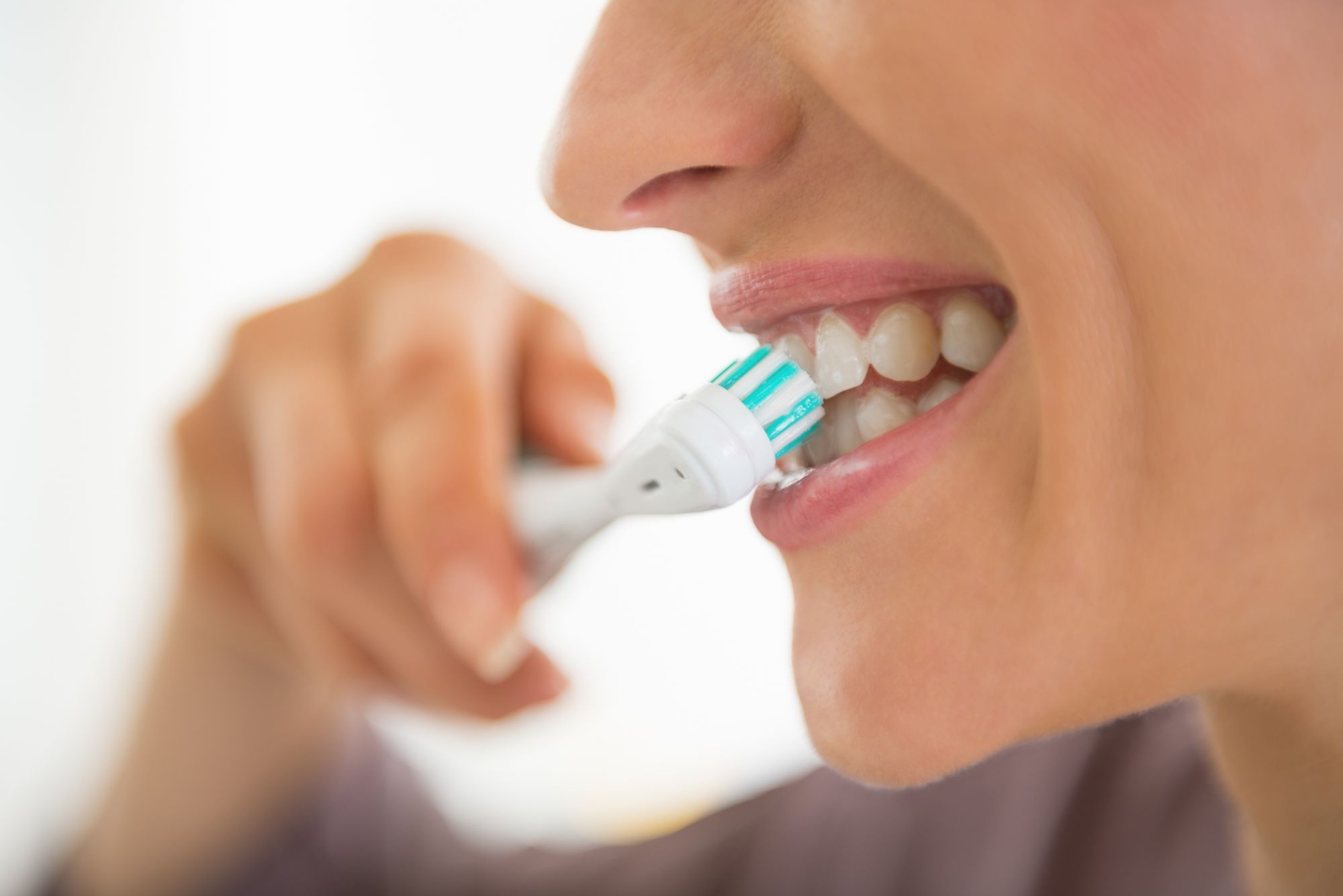10 Habits That Could Be Damaging Your Teeth
These 10 everyday habits might be damaging your teeth. Learn what to avoid to protect your smile and prevent common oral health issues.

Oral diseases are largely avoidable, yet the World Health Organization (WHO) reports that they impact 3.7 billion people worldwide — about 45% of the global population.1 Untreated tooth decay is the world’s most common health condition, but it’s largely avoidable with proper care. While dental insurance can help reduce your out-of-pocket costs for both routine and complex dental visits, there’s a lot you can do at home to help protect your teeth. In fact, there’s just as much you can avoid to give your teeth some extra protection. Here, we break down ten everyday habits that could be damaging to your teeth.
1. Brushing too hard
It sounds counterintuitive, but you can overdo it while brushing your teeth. Using a hard-bristled toothbrush or pressing too hard while brushing can damage your gums and wear the enamel on your teeth. You can avoid this by using a soft-bristled toothbrush and using gentle, wide, circular strokes to brush your teeth.
Brushing too hard can also cause gum recession over time, which may expose sensitive parts of your teeth and increase your risk of cavities or infection. Consider switching to an electric toothbrush with a pressure sensor if you find it difficult to control the amount of force you use.
2. Biting your nails
Biting your nails can cause damage to your fingers and nail bits, of course, but it can also harm your jaw and teeth and even exacerbate issues with congenital disease.2 Biting your nails for too long can cause jaw soreness and chip your teeth.
3. Clenching or grinding your teeth
You might not even realize you clench your jaw or grind your teeth. It could be a subconscious habit or something you do when you sleep. But it’s important to try to curb the habit because it can damage teeth and cause restricted jaw movement. Relaxation exercises or a nighttime mouth guard can help you stop clenching and grinding.
4. Chewing ice
Both ice and enamel are crystals, and when two crystals are pressed against each other, one of them will break. The ice is typically the part that breaks when you chew ice, but it’s possible your tooth could crack instead.
5. Eating too frequently
Eating frequently throughout the day, rather than just at mealtimes, can increase your risk for cavities. That’s because when you’re eating during prolonged periods without brushing, there’s a greater opportunity for food to turn into plaque and tartar on your teeth rather than getting brushed away.
6. Using tobacco
Unsurprisingly, tobacco products have been linked to oral cancer, tooth decay, and many more oral health issues.3 It’s not just chewing or spitting tobacco that you physically insert in your mouth. Cigarettes, cigars, and hookah can all have negative impacts on your oral health. If you’ve used tobacco for a long time, you may even find difficulty getting dental insurance for seniors due to pre-existing dental issues.
7. Using toothpicks
Flossing every day is a good habit, but using toothpicks is not an effective substitute for floss. Sure, restaurants make them available, but restaurants aren’t dentists. Poking at your teeth can mistakenly lead to gum damage. Instead, use an ADA-approved dental cleaning tool or floss to clean between your teeth.
8. Sucking hard candy or cough drops
Cough drops are typically loaded with sugar, so sucking them for long periods of time, like hard candy, can increase the likelihood of getting a cavity.
9. Sugary snacks and drinks
Likewise, sugary snacks and drinks can lead to tooth decay. It’s better to eat healthy, full-balanced meals that keep you full for longer periods of time so you’re not snacking all day. Water is much better for hydration than sugary drinks.
10. Using your teeth for things other than eating
Misusing your teeth, like biting open a bottle or holding a tool in your teeth, can potentially cause problems. Your teeth aren’t meant for biting metal, and they could crack from being improperly used.
The bottom line
Brushing your teeth twice a day, flossing after every meal, and visiting the dentist at least once a year are great ways to keep your mouth in good health. But there are many everyday habits that could be doing more harm than you realize. Cutting out these habits could go a long way in supporting your overall oral health.
Sources:
1 World Health Organization – Oral health. Updated March 17, 2025. https://www.who.int/news-room/fact-sheets/detail/oral-health. Accessed June 11, 2025.
2 International Journal of Cardiology – Prevalence, risk factors and potential implications of nail biting in adults with congenital heart disease. Updated January 1, 2025. https://www.sciencedirect.com/science/article/abs/pii/S0167527324012749. Accessed June 11, 2025.
3 U.S. Food and Drug Administration – How Tobacco Use Affects Oral Health. Updated November 19, 2024. https://www.fda.gov/tobacco-products/health-effects-tobacco-use/how-tobacco-use-affects-oral-health. Accessed June 11, 2025.
Content within this article is provided for general informational purposes and is not provided as tax, legal, health, or financial advice for any person or for any specific situation. Employers, employees, and other individuals should contact their own advisers about their situations. For complete details, including availability and costs of Aflac insurance, please contact your local Aflac agent.
Aflac coverage is underwritten by American Family Life Assurance Company of Columbus. In New York, Aflac coverage is underwritten by American Family Life Assurance Company of New York.
Policy Series A81000 - In Arkansas, Policies A81100AR–A81300AR. In Delaware, Policies A81100–A81300. In Idaho, Policies A81100ID–A81300ID. In New York, Policies NY81100–NY81300. In Oklahoma, Policies A81100OK–A81300OK. In Oregon, Policies A81100OR–A81300OR. In Pennsylvania, Policies A81100PA–A81300PA. In Texas, Policies A81100TX–A81300TX. In Virginia, Policies A81100VA–A81200VA
Policy Series A82000 - In Arkansas, Policies A82100RAR–A82400RAR. In Delaware, Policies A82100R–A82400R. In Idaho, Policies A82100RID–A82400RID. In New York, Policies NY82100–NY82400. In Oklahoma, Policies A82100ROK–A82400ROK. In Oregon, Policies A82100ROR–A82400ROR. In Pennsylvania, Policies A82100RPAR–A82400RPAR. In Texas, Policies A82100RTX–A82400RTX. In Virginia, Policies A82100RVA–A82400RVA.
Coverage underwritten by Tier One Insurance Company:
Policy Series T80000 - In Arkansas, Policy T80000AR. In Delaware, Policy T80000. In Idaho, Policy T80000ID. In Oklahoma, Policy T80000OK. In Oregon, Policy T80000OR. In Pennsylvania, Policy T80000PA-DEN ONLY; T8000PA-DVH. In Texas, Policy T80000TX & T8000TXR. Dental claims are administered by SKYGEN USA, LLC. Vision claims are administered by EyeMed Vision Care, LLC. Hearing claims are administered by Nations Hearing. NOTICE: The coverage offered is not a qualified health plan (QHP) under the Patient Protection and Affordable Care Act (ACA) and is not required to satisfy essential health benefits mandates of the ACA. The coverage provides limited benefits.
Coverage may not be available in all states, including but not limited to DE, ID, NJ, NM, NY, VA or VT. Benefits/premium rates may vary based on state and plan levels. Optional riders may be available at an additional cost. Policies and riders may also contain a waiting period. Refer to the exact policy and rider forms for benefit details, definitions, limitations and exclusions.
Aflac WWHQ | Tier One Insurance Company | 1932 Wynnton Road | Columbus, GA 31999

